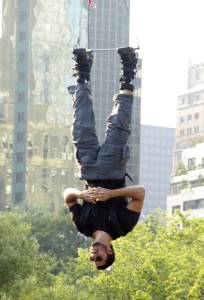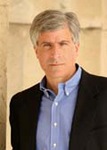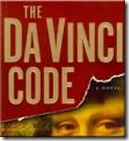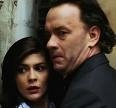Well, it is indeed Dan Brown week in the world of publishing, as our own Joe Moore and John Ramsey Miller have attested. And that’s a good thing. The business needs a shot in the arm. We need to see hardcovers flying off the shelves again. We need people sitting around Starbucks talking fiction, getting caught up in a story world.
There’s been a lot of chatter about the phenomenon of The Lost Symbol, as there was for The Da Vinci Code. But today I’d like to focus on another aspect of this event: the author himself.
This latest book was not easy for Mr. Brown. I mean, how do you follow a once-in-a-lifetime hit like TDVC? That book’s particular mix of vast religious conspiracy, symbology and fast paced action went spinning around on the wheel of fortune and hit the jackpot.
Brown cops to the pressure of following up. Regarding the long lag time between TDVC and The Lost Symbol, Dan Brown was quoted in the L.A. Times as follows:
“The thing that happened to me and must happen to any writer who’s had success is that I temporarily became very self-aware. Instead of writing and saying, ‘This is what the character does,’ you say, ‘Wait, millions of people are going to read this.’ … You’re temporarily crippled….[later] The furor died down, and I realized that none of it had any relevance to what I was doing. I’m just a guy who tells a story.”
Writers, attend to this. What happened to Dan Brown on a mega level happens to most writers who publish more than one book. A lot of unpublished writers think things will be just swell once they’re published, and they can produce book after book with nary a worry.
The truth is, writing fiction gets harder because we continue to raise the bar on ourselves. We do, that is, if we truly care about the craft. We know more about what we do with each book, and where we fall short. We hope we have a growing readership, and want to keep pleasing them, surprising them, delighting them with plot twists, great characters and a bit of stylistic flair.
But we can’t stroll down the aisle of “Plots R Us” and choose something fresh, right out of the box. (Although Erle Stanley Gardner was known to use a complex “plot wheel.” I guess he did okay. And, FWIW, Slate came up with its own plot generator for those truly desperate to cash in on the Dan Brown phenomenon). We are on a never ending quest for concepts, characters and plot. No matter how many books we’ve done, we keep aspiring to the next level.
Dan Brown reportedly deals with all this by using gravity shoes. He hangs upside down, letting the blood rush to his head. Bats use the same method. But there are other options.
Whenever you are wondering if you’ve got the stuff to be published (or, if published, to stay that way), let me offer a few helps.
1. Write. This is the most important thing of all. Get “black on white,” as Maupassant used to say. Even if you feel like pond scum as an artist, just start writing. If you can’t possibly face a page of your project, write a free form journal about something in your past. Begin with “I remember . . .” Pretty soon, you’ll feel like getting back to your novel.
2. Re-read. Pull out a favorite novel, one that really moved you. Read parts of it at random, or even the whole thing. Don’t worry about feeling even worse because you think you can’t write like that author. You’re not supposed to. You never can. But guess what? He can’t write like you, either.
3. Incubate. For half an hour think hard about your project, writing notes to yourself, asking questions. Back yourself into tight corners. Then put all that away for a day and do something else. Walk. Swim. Work your day job. Stuff will be bubbling in your “writer’s brain.” The next day, write.
4. Turn off your Internet browser for a whole day. By which I mean, of course, first read The Kill Zone, then turn off the Net and write. Forget emails, Twitter, Facebook, MySpace, or anybody else’s space. A bit of downtime from all the noise is good for focus.
Mental landmines abound for writers. The key is not to let any of them stop you from writing, even if you have to hang upside down to do it.
So how do you get yourself going when the going gets tough?


 Over the past six years I’ve been asked countless times by the press, fans, and friends about The Da Vinci Code. It’s a natural question since my stories are constantly compared to it. Dan Brown even provided a wonderful blurb for my first novel, The Amber Room, (calling it “sexy, illuminating, and confident . . . my kind of thriller”). I still like reading that comment from time to time.
Over the past six years I’ve been asked countless times by the press, fans, and friends about The Da Vinci Code. It’s a natural question since my stories are constantly compared to it. Dan Brown even provided a wonderful blurb for my first novel, The Amber Room, (calling it “sexy, illuminating, and confident . . . my kind of thriller”). I still like reading that comment from time to time. 



